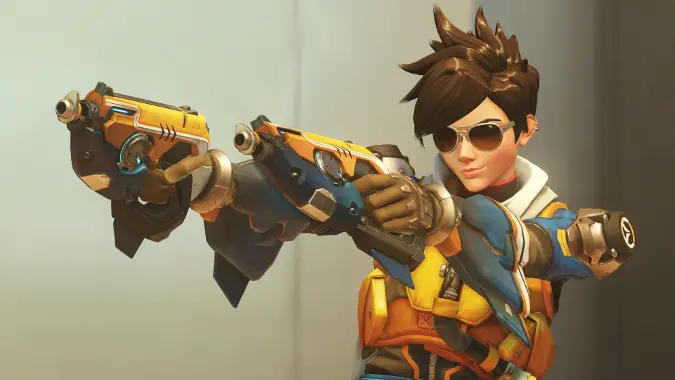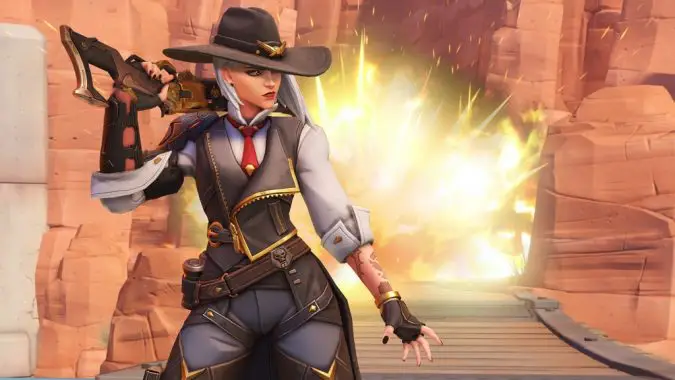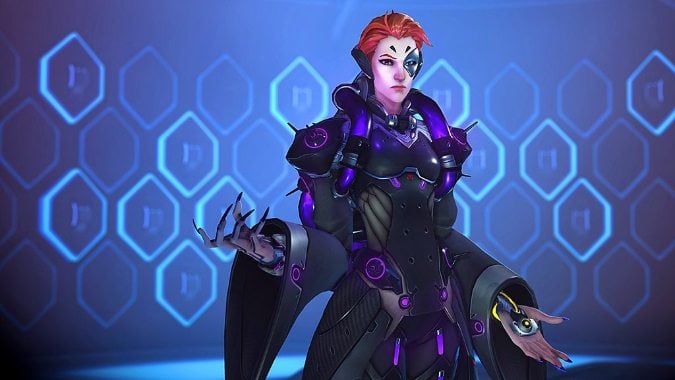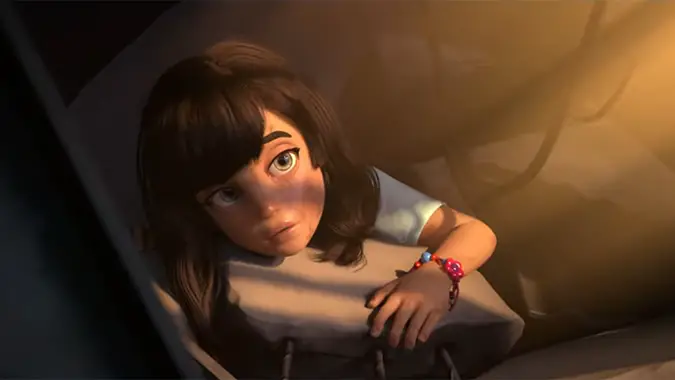In a recent Reddit AMA, the future of Overwatch looks grim

In a recent AMA on the Overwatch subreddit, the developers answered a bunch of questions that put the future of the game and Overwatch 2 in focus. While nothing major was confirmed, the most notable comments gave troubling perspectives on the current status of the game and where it’s going in the future. They’re comments that seem to forget about what made the game special, and they seem to want to double down on making it exactly what nobody wanted the game to become.
In response to a question about power creep — A.K.A., the game becoming increasingly full of high-damage-dealing abilities — Game Director Jeff Kaplan wrote about disliking the discussion around it. He said he sees a lot of people agreeing about power creep without realizing they potentially disagree with the specific problems. At the end of his comment though, he said this about his hope for the game’s future: “My personal feeling is that I would like to see less barriers and CC [crowd control] and see the game trend slightly more in the FPS direction than the MOBA direction.”
In a reply to Kaplan on the same subject, Lead Hero Designer Geoff Goodman discussed the team’s attempts at lowering the overall damage in the game. He said the game feels and plays “a lot worse when the lethality drops too low.” So instead, they’re considering going the other way.
“Interestingly, on our list of experiments to try is to make the game significantly more lethal than it is right now,” Goodman wrote. “I’m not sure how it will play out (we haven’t tried it yet), but the goal would be to allow for more ‘carry’ potential, as a great player would be able to more easily 1 v 2 or 1 v 3 enemies. Again this would just be an experiment, but its interesting to think about and potentially try.” This is not the direction the game should go.

Bold to cold
It’s comments like these that make it feel like Blizzard forgot why they made Overwatch. I forget things too. It’s hot out and I should have refilled my water bottle, but instead I’m sitting here writing about how the direction of this game continues to disappoint me. Except I’m one person and that’s normal. Blizzard is many people; about a hundred of those people work on Overwatch and none of them — especially the most prominent and vocal ones — can seem to remember why they made this game.
There are a lot of criticisms you could have about Overwatch — there were many you could have even at the game’s 2016 launch. As I said before, the game has deeply racist and insensitive parts about its fiction that are inexcusable for a game that purports to show a brighter, more diverse future where everyone is welcome. And because Blizzard has routinely made allowances for the types of players that support these ideas through a general lack of punishment and prevention, it’s not surprising that the game doesn’t seem challenged from any front to fundamentally change. It took an overwhelming movement like Black Lives Matter this year for the game to finally remove McCree’s noose spray, and yet we still have other things like it left in the game’s files.
Overwatch was never actually a pristine portrait of the kind of world it said it wanted to be, but it went a lot further than the rest of the modern shooters back then. It’s a game with a fairly wide variety of heroes with different body types and ethnicities, and it has two popular gay heroes. Except the bar for what counts as actually being diverse has changed a lot with the release of games like Apex Legends and Valorant and tons of other recent games. Apex Legends launched with two black women and even a nonbinary character. Meanwhile, Overwatch released a character that’s built on dangerous mental health stereotypes and a robot that can only talk like the Singaporean scientist who created her. With every release, Overwatch looks less like a sharp image of what games could be and instead a blurring image of what games shouldn’t be.

Missing the point
Overwatch has been falling behind for a few years now and it’s clear where it’s trying to make up for the loss of attention. Actually playing the game has shifted away from the bold shooter for everyone to a shooter that’s desperately trying to be for someone — that someone being the kind of person that wants fast-paced, carry-heavy first-person shooters. This is a game that gutted its most impactful, non-shooter type of heroes like Mercy, D.Va, Symmetra, and Mei in order to crank up the lethality of traditional heroes like McCree and Ashe.
What Blizzard doesn’t realize is that Overwatch proved you can have a game that feels like a MOBA in a first-person shooter context and emphasize the skills that aren’t about aiming and shooting. It was a game where the strategic decisions you made within your team were prioritized over a single person squeezing out four kills on their own. It was the game that refused to let you have a impactful moment without reminding you that your team played a significant part in that. And when you did have those moments, you had to be ready for your opponents to be a step ahead of you.
Everyone was forced to respect the game rules at the cost of their own skill. Now, not only does the game want you to do something amazing, it always frames it as you carrying your team, or doing the work they couldn’t do. It wants nothing to get in your way, especially nothing that would deny your ability to mechanically outmaneuver your opponent. Overwatch turned into a game like any other that worships you and your skill and doesn’t want to let anything get in the way of that thrill. And as a result, heroes like Brigitte, Orisa, and Moira have stuck out like rough edges on a board, needing to be sanded down until they match the rest of the grain.

Increasing lethality actually hurts the game
The answer is not — contrary to the balance changes for the past two and a half years — increasing the lethality of the game. It’s not about making the game like the kinds of shooters people want to play. It’s not about recreating the familiar. It’s about creating a game that subverts and challenges the expectations of traditional shooters and widens the space for the types of people that can excel at it. It’s about making it less lethal to give room for the kinds of skills most shooters ignore. If we wanted to play Apex Legends or Valorant, we can do that easily and for free.
So when the Game Director and the Lead Hero Designer both want the game to become more of one of those, it’s tremendously disappointing. And it’s even worse when everything else about the game is already impossible to defend. Overwatch is becoming no different than every Call of Duty: a rotten thing that’s found its audience and is proud of it. And it’s going to live safely by knowing it’s only ever going to be more of that thing without ever questioning itself again.
There are becoming fewer and fewer things that are redeemable about Overwatch other than the last scraps of the promise it had. All of the heroes and their unique abilities feel like fragments being rotated and warped to fit into something profaned, something that resembles the kinds of games you tell yourself aren’t for you. That Overwatch is okay with that and now is potentially going to embrace that, is the most harrowing it future has ever gotten. It’s a vital time for Overwatch to decide what kind of game it really wants to be with the upcoming release of its sequel. And it seems like it already has an answer.
Please consider supporting our Patreon!
Join the Discussion
Blizzard Watch is a safe space for all readers. By leaving comments on this site you agree to follow our commenting and community guidelines.
 @tylercolp
@tylercolp



